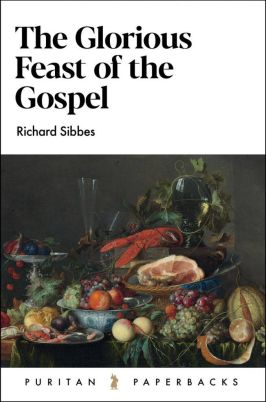save
$0.75The Glorious Feast of the Gospel (Richard Sibbes) (#60)
$8.25$9.00
Sibbes excelled as a comforter of the troubled and doubting. But he also possessed a rare gift of illuminating every passage of Scripture he handled by drawing out its significance for his hearers and readers.
These features of this highly practical Puritan’s ministry figure prominently in The Glorious Feast of the Gospel. Sibbes takes for his text Isaiah 26:6-9 in order to display ‘Christ’s gracious invitation and royal entertainment of believers.’ The subject-matter is a perfect blend of rich doctrine and practical application. Here is an ‘admirable feast indeed … Jesus Christ is the master of the feast, and the cheer and provision too.’
In stock
The Glorious Feast of the Gospel
or, Christ’s Gracious Invitation and Royal Entertainment of Believers
More than anything else, Richard Sibbes (1577–1635) was a great preacher. He never lost sight of the fact that the best Christian counselling is done by the Holy Spirit through the patient and lively exposition of God’s word. Sibbes excelled as a comforter of the troubled and doubting. But he also possessed a rare gift of illuminating every passage of Scripture he handled by drawing out its significance for his hearers and readers.
These features of this highly practical Puritan’s ministry figure prominently in The Glorious Feast of the Gospel. Sibbes takes for his text Isaiah 26:6-9 in order to display ‘Christ’s gracious invitation and royal entertainment of believers.’ The subject-matter is a perfect blend of rich doctrine and practical application. Here is an ‘admirable feast indeed! Jesus Christ is the master of the feast, and the cheer and provision too.’
If you have lost the ‘spiritual relish of savory practical truths,’ these sermons, if read prayerfully, will help you recover it.
‘Now, I will shew why Christ, with his benefits, prerogatives, graces, and comforts, is compared to a feast…’ — Richard Sibbes
About the Author
Richard Sibbes (1577-1635) was born at Tostock, Suffolk, in 1577 and went to school in Bury St. Edmunds. His father, ‘a good sound-hearted Christian’, at first intended that Richard should follow his own trade as a wheelwright, but the boy’s ‘strong inclination to his books, and well-profiting therein’ led to his going up to St. John’s College, Cambridge in 1595. He was converted around 1602-3 through the powerful ministry of Paul Bayne. Bayne was the successor of William Perkins in the pulpit of Great St. Andrew’s Church.
After earning his B.D. in 1610, Sibbes was appointed a lecturer at Holy Trinity Church, Cambridge. Later, through the influence of friends, he was chosen to be the preacher at Gray’s Inn, London. He remained there until 1626. In that year he returned to Cambridge as Master of St Catherine’s Hall. Sibbes later returned to Holy Trinity, this time as its vicar. He was granted a Doctorate in Divinity in 1627, and was thereafter frequently referred to as ‘the heavenly Doctor Sibbes’. He continued his ministry at Gray’s Inn, London, and Holy Trinity, Cambridge, until his death in 1635 at the age of 58.
| Weight | 0.37 lbs |
|---|








